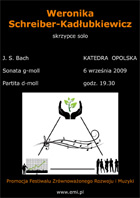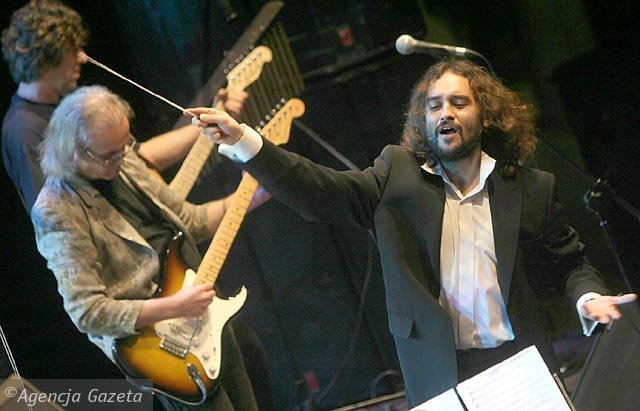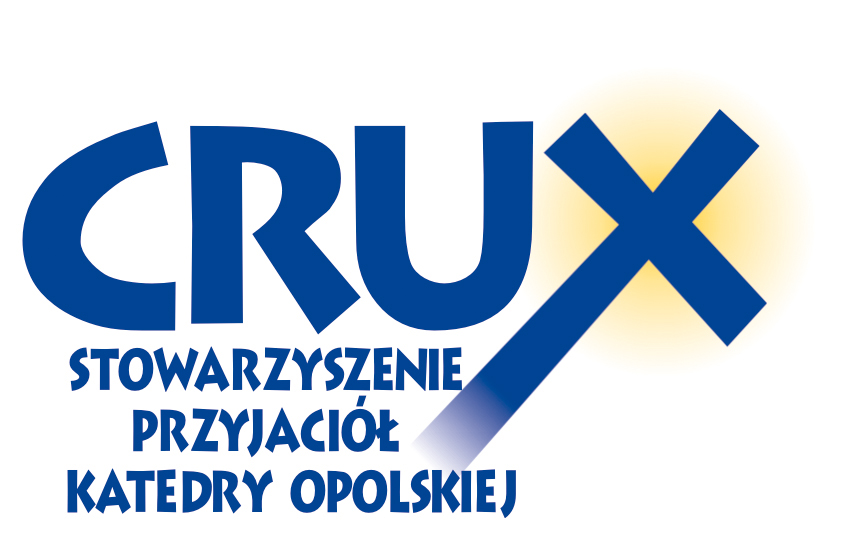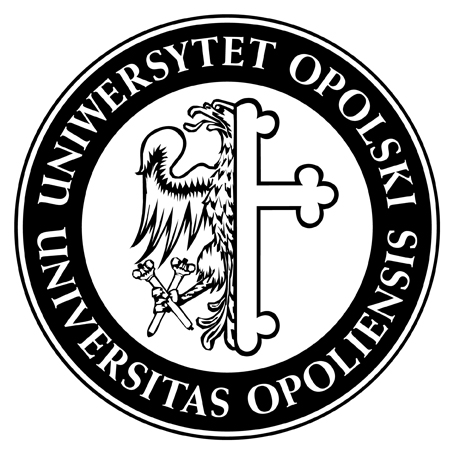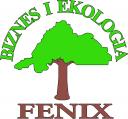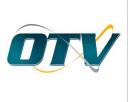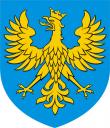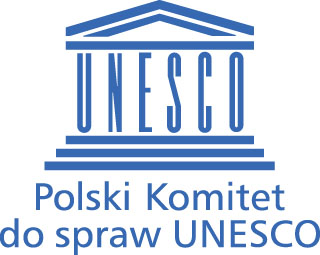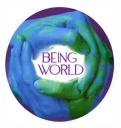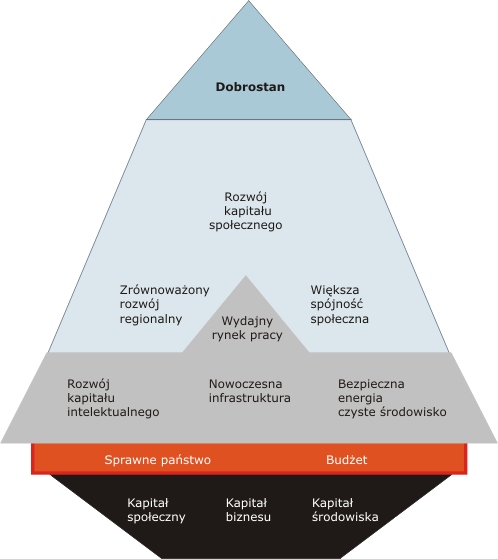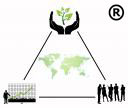Innowacyjność umieszczono w sercu Strategii Europa 2020. Ponieważ obywatel jest stroną Strategii Europa 2020, oznacza to, że rozwój wewnętrzny każdego z nas ma kolosalny wpływ na realizację tej strategii, budowę społeczeństwa obywatelskiego i rozwój kraju.
Kategoria: Sustainable development Blog | Komentarze wył. »
Kategoria: CO2 / Zmiana klimatu | Komentarze wył. »
Kategoria: Sustainable development Blog | Komentarze wył. »
Czy zrównoważony rozwój to tylko hasło związane z funduszami unijnymi, czy też “prawidło” życia naszych czasów?
Uważam że:
- – naukowcy spotykają się na konferencjach, gdzie we własnym gronie dzielą się swoimi przemyśleniami na temat zrównoważonego rozwoju, bez szerokiego przekazu dla mediów, polityków i dla społeczeństwa;
- – w urzędach powstają dokumenty planistyczne niezbędne w procedurach pozyskiwania funduszy unijnych, w których zapis na temat zrównoważonego rozwoju ma miejsce, bo jest tam niezbędny ze względu na politykę Unii Europejskiej;
- – strategię zrównoważonego rozwoju duże przedsiębiorstwa publikują na stronach internetowych, ale głównie w celach marketingowych;
- – średnie i małe przedsiębiorstwa nic na ten temat nie wiedzą lub uważają z góry, że ich na to nie stać, że mają większe własne problemy;
- – wartości odżywcze żywności są coraz gorsze, rolnictwo jest bardziej nastawione na zysk niż na gospodarkę ziemią i produktami rolnymi w duchu zrównoważonego rozwoju;
- – koncerny farmaceutyczne i usługi medyczne głównie liczą się z zyskiem;
- – uczelnie zaznajamiają studentów z problematyką zrównoważonego rozwoju;
- – szkoły zaznajamiają uczniów z ekologią;
- – media wolą nagłaśniać wypadki transportowe i wpadki polityków…
Kategoria: Sustainable development Blog, CSR | Komentarze wył. »
Najnowsza Strategia Unii Europejskiej EUROPA 2020 – strategia na rzecz inteligentnego i zrównoważonego rozwoju sprzyjającego włączeniu społecznemu – to strategia w zasadzie implementująca strategię Sustainable Development Strategy (SDS). Mówi wprawdzie o innych trzech filarach, ale wczytując się dokładnie w treść strategii EUROPA 2020 znajdujemy implementację podejścia opartego na rozwoju kapitału biznesu, rozwoju kapitału społecznego i ochronie środowiska (a więc ochronie i rozwoju kapitału środowiska). Czytaj całość …
Kategoria: Sustainable development Blog | Komentarze wył. »
We need to prevent wasting of the European Union and national funds on capture and storage of carbon dioxide projects. The energetic safety is the first priority task.
We have to be just in time with our information, prior to the approval of EUROPE 2020 strategy in June 2010!
It is very important for our present days and for our future to understand the natural processes correctly, such as the process of the global climate change.
Nicolaus Copernicus had helped us to realize, that our Earth is not a center of the Universe, but merely one of the members of the Solar System. On the basis of this realization one has build also physics of the Earth`s global climate during several recent years. One has assumed, when doing this, that the whole energy influencing the global warming observed in years 1860-1990 was coming from the “interior” of the Solar System, that means from the Sun and from the Earth itself, including her habitants, what further means – coming from the human industrial activities. The fact that the “global” industrial revolution had occurred exactly during the same period of time, has suggested that there are exactly we ourselves, who are one of the main culprits of the observed warming on the Earth.
However, the newest theoretical investigations by physicists and astrophysicists, and the observations of the development of all physical factors connected with climate, as carried out with increasing intensivity in the last twenty-year period, demonstrate unquestionably that the time-correlation between the actual global warming and the industrial revolution was only made by chance. It becomes evident that the amount of energy in human disposal is vanishingly small in comparison with the amount of energy in disposal of Nature (Universe). In order to properly consider this energetic relation, a next “intellectual revolution” is necessary, similar to the “Copernican revolution”. We have to accept the fact that also our Solar System is not an energetic center of the Universe, but it is only a member of huge cosmic hierarchy of such objects as groups of stars, smaller and larger galaxies, up to huge clusters of galaxies. Only an analysis of the energetic relations inside of the whole cosmic hierarchy allows us to understand the process – and what is the most important – to foresee in the next and further future the natural changes of the global climate.
The first and most important practical conclusion from the analysis of the theoretical and observational investigations is the following. The natural warming has reached its theoretical maximum in summer 1990, and since then begun the next natural phase of the global cooling. Initially in years 1990-2003 it was a stagnation rather than an evidently felt cooling. The very recent few years, however, show an undisputable tendency of the falling down Earth`s temperature. This cooling intensify itself during the next half of the century.
The energy resources of the Earth will be in any way high enough to compensate this natural cooling. As soon as possible, we have to change our point of view upon the problem of the “human regulation of climate”, in order to prevent the energetic catastrophe, especially in those regions of the Earth, which are normally colder than the remaining parts of the world. We have to revise our plans to spend funds for capturing and storage of CO2 projects for climate saving. In light of the newest investigations, funds devoted to such projects can be better directed to roads infrastructure, transportation and energetic projects.
Information EMI for politicians, national administration, local administration, business, and media by P. Jakubowski http://www.naturics.de/
Kategoria: CO2 / Zmiana klimatu | Komentarze wył. »
Strategia EUROPA 2020
Czerwcowy szczyt Rady Europejskiej zaowocuje zatwierdzeniem strategii EUROPA 2020, potwierdzeniem celów UE i celów krajowych oraz zaaprobowaniem zintegrowanych wytycznych dla strategii EUROPA 2020.
Strategia EUROPA 2020 to strategia na rzecz inteligentnego i zrównoważonego rozwoju sprzyjającemu włączeniu społecznemu. Strategia ta implementuje w zasadzie strategię EU SDS. Jest strategią zrównoważonego rozwoju.
Kategoria: Sustainable development Blog | Komentarze wył. »
Sustainable Development and Music Festival, Opole 2010
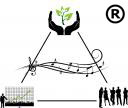 Signal of the Festival ZR/SD-M
Signal of the Festival ZR/SD-M
The co-organizers:
The goals:
The creation of the platform of reflections, new ideas and education.
The promotion of the Polish end the others business representatives and communes which are on sustainable development road.
The strengthening of cooperation between different actors of sustainable development implementation process.
The creation of education platform, international exchange of experience, expertise, culture.
The holistic process of education for sustainable development as lifelong learning process.
The promotion of music as a tool for imagination, creativity, innovation development, tool supporting changes of our consciousness,
The promotion of practices and techniques for human development.
The promotion of Opole Region.
The inauguration of yearly Festival is 7th September 2010.
“Sustainable Development – vision and practice in XXI century” workshops will be one of the form of realization of the Festival.
Programme of the Festival you can see in category programme.
The Festival is under the auspices of:
The media patronage:
Manager of the Festival: Wanda Pazdan
Artistic Manager: Weronika Schreiber-Kadłubkiewicz
EMI manage the Festival office.
We cordially invite SPONSORS. There are three packages of services:
You can help us to build a powerful network through a series of meetings, discussions, concerts, trainings and events where participants will have opportunities to enrich creativity and to help generate new possibilities for everybody.
Economical recession it is a danger and an area of new possibilities.
The implementation of sustainable development, new technologies, new organizational solutions, as well changes of our awarness – it is an area of new possibilities.
Creativity, energy efficiency, material efficiency of production and consumption, climate change, new energy, health care, psychology and music, as tools for creativity development, it is a thematic framework of ZR/SD-M Festival .
Kategoria: Festival ZR/SD-M | Komentarze wył. »
Sorry, this entry is only available in Polski.
Kategoria: Sustainable development Blog | Komentarze wył. »
“Biznes i Ekologia” and EMI company convinced that a commune [in Polish: gmina, in other countries also called a municipality or township], as a basic self-government unit, has a huge impact on saving Our Planet and development of the human species,
announce the Competition for the title of:
“SUSTAINABLE DEVELOPMENT COMMUNE”
ZR/SD Commune 2010, for short
under auspices of:
Marszałka Województwa Opolskiego Prezydenta Miasta Opola
Polski Komitet ds UNESCO Business Centre Club
COMMITMENT TO EUROPE BEING WORLD
The goal is to promote system solutions adopted in communes, as well as communes themselves which:
– chose to start out on the sustainable development course,
– are known for their superior management culture,
– in management take into account capital in the classical meaning of the word but also global human capital and natural capital of the globe,
– stimulate development of innovative products/services which deserve to be called sustainable development products/services.
Assessment criteria for the “ZR/SD Commune 2010” title stem from the definition of ZR/SD Commune specified by EMI.
The results of the Competition will be announced in 2010 during one of the events of the Festival of Sustainable Development and Music in Opole (ZR/SD-M Festival). The winners will receive diplomas and throughout 2010 will be entitled to use the Winner of ZR/SD Commune 2010- Competition (Sustainable Development Commune) graphic symbol.
The Registration Form for Candidates for the title “ZR/SD Commune 2009” is published on EMI’s website. Registration will be accepted till April 30, 2010. The Application Form for 2010 will be accepted till June 30, 2010.
Apart from experts from EMI and Partners also a group of invited specialists and interested Internet users will participate in the assessment process, and they will be provided with a special form at EMI’s website for selecting the winners in October and November 2010.
All COMMUNES OF EUROPE are cordially invited to participate in the Competition!
All Internet users are cordially invited to select their candidates for winning!
Some Rules for the Edition of ZR/SD Commune 2010 Competition
Organizers:
Kategoria: Competition Commune ZR/SD | Komentarze wył. »
“Biznes i Ekologia” [“Business and Ecology”] together with EMI company, convinced that people and business are leaders in saving Our Planet and development of the human species,
announce the Competition for the title of:
“SUSTAINABLE DEVELOPMENT MANAGER”
ZR/SD Manager 2010, for short
under auspices of:
Marszałka Województwa Opolskiego Prezydenta Miasta Opola
Polski Komitet ds UNESCO Business Centre Club
COMMITMENT TO EUROPE BEING WORLD
The goal is to promote individuals and companies who:
– chose to start out on the sustainable development course,
– are known for their superior management culture,
– in management take into account capital in the classical meaning of the word but also global human capital and natural capital of the globe,
– stimulate development of innovative products/services which deserve to be called sustainable development products/services.
Assessment criteria for the “ZR/SD Manager 2010” title stem from the definition of ZR/SD Manager specified by EMI.
The competition is an amended edition of the Competition/Popularity Contest EKOBIZNESMEN ROKU [ECO-BUSINESSPERSON OF THE YEAR], announced several years ago by the magazine “Biznes i Ekologia.”
The results of the Competition will be announced in 2010 during one of the events of the International Festival of Sustainable Development and Music in Opole ( Festival ZR/SD-M). The winners will receive diplomas and throughout 2011 will be entitled to use the Winner of ZR/SD Manager 2010 Competition (Sustainable Development Manager) graphic symbol.
Honorable Titles “ZR/SD Manager 2010” will also be granted, also to people who are not businesspersons, but contribute to implementation of principles of sustainable development.
The application form for Candidates for the title “ZR/SD Manager 2010” is published on EMI’s website. Registration will be accepted till April 30, 2010. Applications for 2010 will be accepted till 30 June, 2010.
Apart from experts from EMI and “Biznes i Ekologia” also a group of invited experts and interested Internet users will participate in the assessment process, and they will be provided with a special form for selecting the winners in October and November 2010.
Huge Companies and MSP from all Europe are cordially invited to participate in the Competition!
All Internet users are cordially invited to select their candidates for winning.
Rules for the Edition of ZR/SD Manager 2010 Competition
Organizers:
Kategoria: Competiton - Manager ZR/SD | Komentarze wył. »
Voice in the public discussion on the Green Paper “POLAND 2030 – Development challenges”
On June 17, 2009, the Prime Minister of Poland, Donald Tusk presented a report “POLAND 2030 – Development challenges.” The document presents 10 biggest challenges Poland will be facing within the next two decades:
- Growth and competitiveness
- Demographic condition
- High professional activity and adaptiveness of labour resources
- Adequate infrastructural potential
- Energy and climate safety
- Economy based on development of knowledge and intellectual capital
- Solidarity and regional cohesion
- Improvement of social cohesion
- Performing state
- Poland’s social capital growth.
The expression ‘sustainable development’ has been used several times , sometimes with additional word: ‘regional.’ It is clear that the report, which is to be the framework for a long-term Strategy for Development of Poland, does no implement the EU Sustainable Development Strategy (UE SDS) –http://ec.europa.eu/sustainable/docs/renewed_eu_sds_pl.pdf, which according to the EU takes priority over the Lisbon Strategy. This means that as of today Poland has no binding Sustainable Development Strategy and it will not have one in the near future, unless the public discussion on the Report changes it.
In September 2009 Member States of EU plan the analysis of SDS implemention in the countries of EU …
In the face of the above, talking about ‘civilisational leap’ – isn’t it slightly exaggerated?
I am afraid that the presented polarisation and diffusion model of development does not guarantee the civilisational leap (the model can be found in the section “POLAND 2030 – Development Changes FINAL RECOMMENDATIONS,” page 375 of the Report in Polish and page 6 in English version of Final Recomendations http://www.polska2030.pl/ ).
Justification:
Only demographic development, economic growth and performing state were assumed as solid foundations for development of Poland. Out of three sustainable development capitals, the authors of the report notice only two: social and economic (performing state is the social capital). THEY FAIL TO SEE THE ENVIRONMENTAL CAPITAL!
The planned policies and indicators of success do not include topics related to the environment.
Till 2030 no changes are planned in the tax system toward shifting the tax burden from labour to consumption of resources and energy or environmental pollution.
Lack of the environmental capital in Poland’s development foundations will result in financial problems faced by local communities in implementing delegation of tasks and services pertaining to, for example, social circles – (planned Welfare Society).
Communication, education, labour market, social trust, performing state are all very important development factors, but failing to include the environmental capital in the foundations for development of Poland for the next 20 years is a big mistake. Reasonably used environmental capital may provide a big labour market and generate enormous profits in the long term – the Report discusses long term issues! Integration of three aspects (business, society, environment) with each action is crucial.
Proposal to amend the model
How different is this model comparing to one presented by the authors of POLAND 2030 report? It is the vision of including the environmental capital, as significant dimension of each action, irrespective of whether related to production, service, finances, administration, healthcare sector, culture, sports, or tourism. This is the vision which cares about the quality of life, the well-being in which the shift is made from “to have” to “to be.” It does not imply an obstacle to the development but rather indicates a direction fitting for the 21st century.
Under the environmental law, which defines sustainable development, the Report, which aspires to be a base for strategy, is subject to the environmental impact assessment.
I think some significant changes should be made in the model presented by the authors of the Poland 2030 – as for example those presented above. Otherwise the environmental impact assessments of strategies and programs created in the framework of the version of the report “POLAND 2030 – Development challenges,” published in June 2009, should be negative.
Additional proposal
Inclusion of the Balanced Scorecard in the Polish management process, where the economy, society and the environment would be treated as the “Client,” is another thought to ponder. In other words,tokens of success described in the Report should be extended by target environmental quality indicators.
Wanda Pazdan
Kategoria: Sustainable development Blog | Komentarze wył. »
SDS – the text of UE Sustainable Development Strategy.
Kategoria: Sustainable development Blog | Komentarze wył. »
At this moment Poland is developing new strategy. Now we do not have NSDS. We live in theDecade of Education for Sustainable Development.There is only one way of continuous and consistent efforts to increase public awareness, i.e. through growing responsibility of each organizational unit including our government and each one of us.
Human being as an organism acts and develops in a specific environment. There is a close relationship between him and the world around him. Emotions are the way we relate to the surrounding stimuli, information. The established sustainable development strategy includes in itself measurable goals. Their implementation is largely dependent on the motivation of each Pole, as during implementation of sustainable development, interaction between people and business, social and administrative entities is a significant factor.
Secondary emotions are emotions developed on the basis of personal inclinations together with some experience gained through our life. That is why the Committee of the Regions calls for education about sustainable development starting at the day or child care center level… Culture marks out trends of thinking and, as a result, impressions of individual persons result in the so called secondary emotion, as distinguished from primary emotion, in which automatism plays the major role. Emotions related to sustainable development, motivations of individual organizational entities, as well as inhabitants depend on the way the authorities form the sustainable development strategy, the way they promote it and on the quality of engagement of culture and education.
Quotation from Stefan Kozłowski’s last publication “Zrównoważony rozwój – program na jutro” [transl. “Sustainable Development – Program for Tomorrow”] Abrys Poznań-Warszawa 2008 (publication enjoys the Honorary Patronage of Prof. Maciej Nowicki, Minister of the Environment):
“…Another world summit on issues of the environment and development should be organized in 2012. Preparations to this summit should be well under way right now. Lesław Michnowski, an outstanding theorist of eco-development [Wanda Pazdan’s note ekorozwój (eco-development ) in Polish also means zrównoważony rozwój i.e. sustainable development] , has been seeking to have this summit in Warsaw for many years.
The European sustainable development strategy is a huge challenge for the European Union countries. By joining the EU in 2004, Poland became automatically obliged to implement this strategy. It turned out that its implementation has a lot of setbacks and barriers. Some of them are, for example:
– the lack of a governmental committee on sustainable development,
– the lack of a strategy for protection and sustainable use of biodiversity,
– the lack of a current concept for area development for the whole country,
– the lack of organizational structures for management of Ecological NATURA 2000 Network,
– delays in implementation of the EU directives…
…The lack of political will for implementation of the EU directives has already resulted in serious conflicts with the European Commission. In 2007, the European Commission asked the European Court of Justice to punish Poland for faulty marking out of NATURA 2000 areas and their management. Those motions are related to the conflict about transport solutions in the area of the Rospuda Valley, as well as the extension of the cable car system to Kasprowy Wierch mountain. Those examples indicate that there are still no fully formed mechanisms for solving local conflicts in accordance with European standards in Poland. Involving politics in those conflicts results in disastrous procedural and social consequences. Instead of education in the spirit of respect to natural resources, individual political parties, fanned by their ambitions, bring about negative attitudes to the natural environment in local communities. Actions of this type by our political class constitute an enormous threat to the implementation of the European environmental policy. The result may be very severe financial penalties and even suspension of investment grants (especially for road infrastructure) awarded to Poland for the period between 2007 and 2013… If we think about radical improvement and want to implement assumptions of sustainable development, we must change our perspective on life and mental attitude. If possible, only by systematic education of the younger generations to think holistically, globally, ecologically. Current education system, however, encourages rationalistic, mechanistic approach to life. … Campaign on reasons and effects of global climate change and methods of curbing them, carried out in 2006 and 2007 and initiated by the former vice-president of the United States, a renown champion of sustainable development, Al Gor, made many societies aware about the necessity to change current way of development. In Poland, however, the campaign was not well-publicized. Stronger and stronger integration with the European Union may prove to be the most crucial chance for sustainable development of Poland, taking into consideration all its pillars, including forming its natural and cultural sphere. Decisions by the European Parliament and the European Commission, especially those in form of directives which must be implemented throughout the Community, aim at sustaining balance between natural, social and economic aspects. Both the European Treaty and its two main development strategies – Lisbon, dealing mainly with economic issues, and Gothenburg, related to sustainable development, through gradual implementation in Poland, may bring us closer to desirable results and all the more so as in each successive decade the inflow of EU funds will play a deciding role in our development. Control of how they are spent, among other things, adherence to the sustainable development criterion, will constitute one of the basic methods of achieving goals of eco-development. In a modern, civilized state no other way should be even considered…” end of quotation
SDS UE
Kategoria: Sustainable development Blog | Komentarze wył. »
“Firma ZR/SD” (in English: ZR/SD Firm) stands for “Firma Zrównoważonego Rozwoju,” or “Przedsiębiorstwo Zrównoważonego Rozwoju” (sustainable development company/enterprise).
A firm can be called a sustainable development company/enterprise if:
– in its vision statement it has included assurance of its existence and development in the specified remote future, along with respect to the environment and needs of local communities,
– and has transformed such a vision into a strategy of sustainable development in a manner which ensures control of its implementation,
– while its planning and operation management system has been adapted to reporting progress in pursuit of sustainable development,
– the strategy has been harmonized with EU, national and local strategies of sustainable development
– it has developed and announced a declaration of sustainable development culture.
Yearly Report in GRI format or a similar one is audited by independent organization and publicly available.
Kategoria: CSR, ZR/SD Enterprise | Komentarze wył. »
THE DECLARATION OF FIRM CULTURE IN THE SPIRIT OF SUSTAINABLE DEVELOPMENT should include the following declarations:
– declaration to implement a progress management system in pursuit of sustainable development;
– declaration to implement public domain annual reports pursuant to GRI (Global Reporting Initiative) recommendations or in a similar form and to have them audited by an independent entity (university, institute, consulting company, etc.);
– declaration to manufacture products or to provide services to the market which are gradually more energy-saving, water-saving, less material consumptive, with lower direct and indirect emission of CO2 and other greenhouse gases, with decreasing direct or indirect emission of all process pollutants, with growing share of green energy consumption from local materials, with minimization of waste and involvement of modern methods of waste disposal, with increasing role of recycling services of the sold products, commodities and services which do not have a negative impact on ecosystems (biodiversity), which do not imperil health of human beings, with extended lifecycle through facilitating availability of spare parts throughout the anticipated time of product use;
– declaration to use power, water and materials more sparingly for non-production purposes;
– declaration of becoming independent from power providers, taking into account green energy;
– declaration to minimize individual transportation needs and to optimize transportation fleet from the ecological and financial perspective;
– declaration to care about safety at work;
– declaration to educate employees on permanent basis, taking into account the role of literature, music (art) and physical exercise in development of creative individuals;
– declaration to support prevention of disease;
– declaration to support tolerance of cultural diversity;
– declaration to increase percentage share of green procurements;
– declaration to increase percentage share of orders from suppliers who respect the Charter of Fundamental Rights of the European Union, Charter of Human Rights;
– declaration of intensifying care about esthetic impression of the workplace and company premises, as well as about employees’ culture;
– declaration to care more about development of local and world community.
Signed by a person formally representing a given firm
Kategoria: CSR, ZR/SD Enterprise | Komentarze wył. »
Wanda Pazdan 16 Dec 2008
Culture can be defined as the whole complex ofproducts and human efforts, material and nonmaterial (i.e. spiritual, symbolic, such as mental and behavioral patterns).
THE DECLARATION OF COMMUNE CULTURE IN THE SPIRIT OF SUSTAINABLE DEVELOPMENT should include the following declarations:
– declaration to implement a progress management system in pursuit of sustainable development;
– declaration to implement public domain annual reports pursuant to GRI (Global Reporting Initiative) recommendations or in a similar form and to have them audited by an independent entity (university, institute, consulting company, etc.);
– declaration to care about safety, including, among others declaration to implement a Commune Energy Center with green energy, declaration to care about the quality of air, water, soil, biodiversity;
– declaration to implement a Commune Database, based on GIS, for strategic and operations management;
– declaration to minimize wastes and apply modern waste disposal methods;
– declaration to implement a commonly available sewerage and water supply system;
– declaration to minimize individual transportation needs and to optimize transportation fleet from the ecological and financial perspective;
– declaration to promote continuous education;
– declaration to support education which appreciates the role of literature, music (art) and physical exercise in development of creative individuals;
– declaration to promote prevention of disease;
– declaration to promote tolerance of cultural diversity;
– declaration to prevent social pathologies;
– declaration to promote changes in consumption patterns (music, art, physical culture are also legitimate consumer goods);
– declaration to increase percentage share of green procurements in the procurement pool;
– declaration to increase percentage share of orders from suppliers who respect the Charter of Fundamental Rights of the European Union, Charter of Human Rights;
– declaration to exercise greater care for clients, ergonomics and esthetic impression of the communal office and area of the commune as a whole, cultural heritage and culture of employees;
– declaration to initiate changes in education, health care, business, society, non-governmental organizations, in political life, and in the media in the direction of sustainable development.
Signed by the Head/Mayor/President of the City/Town
Kategoria: CSR, Competition Commune ZR/SD | Komentarze wył. »
ZR/SD Manager: sustainable development manager is a manager who through her or his activity and impact on the employees has managed to:
– formulate with her or his employees a vision statement concerning the development of the given organizational unit in the specified remote future, a vision in which economic development goes hand in hand with respect to the environment and the society,
– transfer the vision statement into a strategy of sustainable development and main strategy in a way which:
– enables them to control its implementation;
– ensures alignment of the form and goals with strategies of higher levels of administration, up to the EU;
– adjust planning and operation management system to reporting progress in pursuit of sustainable development;
– develop and implement a declaration of culture of the organization in the spirit of sustainable development;
– provide an atmosphere in which employees are encouraged to question status quo and to take risk;
– develop employee’s imagination and spirituality and to motivate them to continuous education;
– stimulate employee’s creativity.
By her or his activity they stimulate development of innovative products/services which deserve to be called sustainable development products/services. SD Manager supports cultural, health and educational projects.
Kategoria: CSR, Competiton - Manager ZR/SD | Komentarze wył. »
“Gmina ZR/SD” stands for ” zrównoważonego rozwoju” / sustainable development commune. In Polish “sustainable development” means “zrównoważony rozwój”.
Commune can be called a sustainable development commune if:
– in its vision statement it has included economical development in the specified remote future, along with respect to the world environment and needs of people on the world,
– and has transformed such a vision into a strategy of sustainable development in a manner which ensures control of its implementation,
– while its planning and operation management system has been adapted to reporting progress in pursuit of sustainable development,
– the strategy has been harmonised with EU strategy, national and local sustainable development strategies,
– it has developed and announced a declaration of the culture of sustainable development.
Kategoria: CSR, Competition Commune ZR/SD | Komentarze wył. »
When I initiate a discussion on sustainable development with businessmen, I often recognize a similar mocking or irritated undertone in the response: “…. do you really know what business is?”
And I dare say, I know, after years of work as a manager and consultant. I know it enough to understand the hint of mockery or irritation, and enough – to question the notion that the term “sustainable development company” is not justified in the real world.
True, it is easier to consider implementation of beautiful theories in the atmosphere free from financial worries, when we do not need to fret about the survival of a company on the market. Let us not forget, however, there is a risk lurking in short-sighted plans too…
21st century is a century of sustainable development. In July, 2008, the European Commission published the Sustainable Consumption and Production and Sustainable Industrial Policy Action Plan COM(2008) 397. Currently, the first version of the document “THE SUSTAINABLE PRODUCTION AND CONSUMPTION ACTION PROGRAM FOR 2008-2011” undergoes the process of public consultation. Up to December 12, 2008 everybody may suggest amendments to it.
Reading the aforementioned document by the European Commission and the draft plan prepared by our Ministry of Economy, I have an impression that beautiful ideas are being implemented right now. In 1998, Ray. C. Anderson published in the USA his “Mid-Course Correction. Toward a Sustainable Enterprise: The Interface Model” book. One can find there a beautifully described model of a sustainable development enterprise.
Solutions in the documents on strategy by the EU and in those being prepared by our Ministry of Economy resemble this model very much…
Kategoria: CSR, Articles and reportage | Komentarze wył. »
Last year, a number of companies which crop up increased significantly when we enter the following terms, in Polish or in English, in the Google search engine:
Odpowiedzialny biznes (responsible business),
Zrównoważony rozwój (sustainable development),
CSR (Corporate Social Responsibility),
Ethical Corporation,
Accountability.
This is really encouraging, especially, if apart from expressing it in words and announcing on the Internet, an organizational unit decides to put the sustainable development strategy into actual plans of action, integrating it into its entire internal management system and using it during cooperation with customers or partners.
It is a shame, however, that only the media dealing with environmental protection write about this.
In Poland, the Ministry of Economy is currently the leader in implementing sustainable development. There is still no person who would act as a coordinator managing sustainable development of Poland at the level of the government of the Republic of Poland.
To the main measurable goals of the Strategy for Sustainable Development of Poland to 2025 belong maintaining about 5% economic growth and, as a target value, four times increase in efficiency of utilization of raw materials, fuels, and natural resources.
Among other things, we do not have any specified goals for reduction of CO2 in the aforementioned document…, but we organize COP14.
Business in Poland, regardless of the political parties in power, has a chance to put the principles of sustainable development into practice.
The 19th century was a century of industry, the 20th – belonged to science and computer technology, but the 21st century, experts say, will be a century when the needs of various communities and respect to the natural environment will be incorporated into business.
Last year CSR even managed to become part of the governmental policy in several countries in Europe and around the world. Governments of many countries have appreciated the role of corporate social responsibility. A discussion on the new role of business in society has been in progress.
In July, 2008, the COM(2008) 397 document was published, namely, the Communication from the Commission to the European Parliament, the Council, the European Economic and Social Committee and the Committee of the Regions on the Sustainable Consumption and Production and Sustainable Industrial Policy Action Plan.
As early as in 2006, the Commission issued the COM(2006) 136 document, i.e. a Communication on Making Europe a Pole of Excellence on Corporate Social Responsibility.
Kategoria: Sustainable development Blog, CSR | Komentarze wył. »
Soon, Al Gor and the Intergovernmental Panel on Climate Change (IPCC), established 19 years ago, will receive the Nobel Peace Prize. The Norwegian Nobel Committee justified granting the Prize as follows: “for their efforts to build up and disseminate greater knowledge about man-made climate change, and to lay the foundations for the measures that are needed to counteract such change.”
This fact awakens in me some reflections and memories.
Sixteen years ago, for the first time in my work, I used the IPCC guidelines. At that time I used working materials to the first copy of IPCC Guidelines for National Greenhouse Gas Inventories. In 1993 and 1994, I led the national air emission inventory CORINAIR’90, under the agreement between ATMOTERM S.C. company and the European Commissions Environmental Directorate General (DGXI). It was implementation of a new methodology of air emission inventory-a big challenge for me and for my company involving huge satisfaction from the performed work.
It was a nongovernmental air emission inventory and included 8 groups of gases. Carbon dioxide, methane and nitrous oxide emissions inventory was to be compiled according to the IPCC methodology, other gases – according to the UNECE-CORINAIR methodology. The air emission inventory proved to be the first one comparable to those compiled in other countries. Twenty nine European countries participated in the project. The European Commission regarded Poland CORINAIR’90 as one o the best inventories compiled in Europe. In Opole, on the premises of ATMOTERM S.C. company, I organized a Seminar with participation of representatives of the Ministry of the Environment, Chief Inspectorate for Environmental Protection, state scientific institutes and Polish research units which took up the issues of air emissions at the request of the Ministry of the Environment. During the Seminar I defended the results of the inventory. Upon such approval, I sent the report to the European Commission and my company published it in a book form under the auspices of the Ministry of the Environment. The table with the inventory results was for several years published by the Central Statistical Office. The Ministry used the results of the paper in the Governmental Report for the First Conference of the Parties of the United Nations Framework Convention on Climate Change (COP1). The CORINAIR’90 report received “The Best Product of the Opole Region”award in 1994.
I took part in the UN Task Force On Emissions Inventories and Projections (TFEIP UNECE). During the years 1994 to 1996, within ATMOTERM company, I participated in the Phare project Design of the System of Transferable Emission Permits and Implementation of the Pilot Project in Poland. Some of the solutions in the project suggested by me are implemented in the current European CO2 emission trading. Between 1998 and 2000, within ATMOTERM sp. z o.o. company, I led an international project Phare Topic Link on Air Emission (PTL-AE). Its main objective was analysis of the situation and technical assistance in 13 Central European states seeking accession to the EU, preparation of data from those countries in the format required for the reports of the European Environment Agency (EEA). The work, among others, was related to greenhouse gases and IPCC methodology. It involved cooperation with the EEA, ETC/AE and its network EIONET. In 2000, as a eader of Phare Topic Link on Air Emission, I took part in the meeting of IPCC experts in the India Habitat Centre, New Delhi, where I talked on the subject “Achievements in the field of emission factors.” One of the main goals of my report was to convince the listeners that plants which manufacture the same goods, have different emissions per production unit. At that time, that was a new idea for many experts, not only those from Third World nations. From 2004 to 2006, I worked in the EU project “Support to Air Monitoring,” in Bosnia&Herzegovina, dealing also with the issues of emission inventory, including IPCC methodology. I proved that current statistical data practice involved in EUROSTAT, and consequently, in the Central Statistical Office, should be changed, if we want to have good quality emission estimates at the country level. The principles of statistical data collection do not keep up with changes in economy. The development of small and medium-sized businesses did not bring parallel changes in the statistical system.
Reduction of CO2 emissions is one of the main, joint efforts in the EU and may prove to stimulate new technologies and behaviors.
The next conference of the countries which are the signatories of the United Nations Framework Convention on Climate Change UNFCCC (COP), will be held in December, this time in Bali.
In 2007, Nobel Peace Prize winner organized Live Earth concerts, a series of musical events for the purpose of drawing more attention to the greenhouse effect and growing CO2 emissions into the atmosphere. Global warming will contribute to even more intensive heat waves and devastating droughts in some regions (e.g. in southern Europe or northern Africa), and floods in other areas (like northern Europe or southeast Asia), as well as melting glaciers, rising sea levels, stronger and more frequent gales, thunderstorms or tornadoes. The IPCC Panel confirmed with over 90 percent probability that by developing industry we cause overheating the Earth.
The press reveals Al Gore’s high bills for electricity suggesting that the Nobel winner should probably apply the principle “physician, heal thyself” before anything else… But do the media justify such conclusions? No information is provided about power consumption per surface area unit of the house, office, or person. Providing comparable information is important not only at the level of negotiations between two countries!
Since 2007, apart from consulting, I have been organizing and managing artistic events, like concerts. For some time, I have been planning a series of partly oral, partly musical events for promotion of sustainable development.
Kategoria: CO2 / Zmiana klimatu, Articles and reportage | Komentarze wył. »
A Google query for a Polish term “zrównoważony rozwój”, or English “sustainable development”, or “ekorozwój”, provides a long list with links to interesting materials related to sustainable development and concerning a wide spectrum of actions – from international ones to those taken in kindergartens.
What is sustainable development? It is a guiding principle for the nations of the world, which in the 21st century, on a massive scale and with tangible results, will become part of political, economic, social actions, as well as those related to environmental protection, at all levels of management, including the level of families and of individual people.
The world history of the idea can be found, for example, at the website of the Ministry of Foreign Affairs.
At international level, the idea was for the first time defined in a concise manner in 1987 in “Our Common Future” report prepared by the World Commission on Environment and Development. According to it,
sustainable development is the “development that meets the needs of the present without compromising the ability of future generations to meet their own needs.”
Is SD another utopian, beautiful idea, or is it something we can, in practical terms, relate to today? Sustainable development is not a dream world or an idea cherished only by a circle of ecophilosophers.
Sustainable development is a result of the system of strategic actions based on principles of sustainable development and action plans agreed upon at international level.
The current Polish “Environmental Law” specifies that sustainable development is a social and economic development in which political, economic and social activities are integrated with maintenance of ecological balance and permanence of basic natural processes so that the possibility to satisfy basic needs of individual communities or citizens of the current and future generations is safeguarded.
Current Constitution of the Republic of Poland treats sustainable development as a constitutional principle, providing each one of us with the right to go along the path of sustainable development in accordance to policies pursued by public authorities (Articles 5 and 74).
The European Sustainable Development Strategy (SDS), also called the Gothenburg Strategy, groups aspects of development into the so called tripple-bottom-line: business, society, environment, and adds the aspect of external policy of establishing international institutions for the purpose of global security.
We no longer deal with only one, strictly related to business, capital – we also have Human Capital, and Natural Capital which serve as a whole.
Each business activity entangles social and environmental aspects.
Each activity of the administration also entangles business, social and environmental aspects.
Each action of a family or each our (as individual human beings) action entangles business, social and environmental aspects…
Each person’s actions may either facilitate or hinder implementation of sustainable development strategy. We have and should have free will. It is all up to us, and our actions should have impact on actions of our children and of all those with whom we associate… If we change consumption patterns, the change of production and service patterns will follow simply as a result of our actions…
Pursuant to the provisions of the amended Gothenburg Strategy (SDS) the member states should have amended and harmonized their strategies with the SDS (approved in 2006). All management levels, including levels of organizational units, should have a harmonized sustainable development strategy. Every two years, the member states are to report the European Council about the state of implementation of the Strategy.
Being provided with information leads to awareness, and awareness leads to responsibility. The growing number of manufacturers and service providers declare adherence to corporate social responsibility in their business activity and publish their strategies of sustainable development on the Internet. We witness the beginning of new era, with a new role of business in society. In 2008, in Davos, Bill Gates was proving that we should go even further than suggested by Muhammad Yunus, the Nobel Peace Prize winner, who in 2006 argued that apart from enterprises oriented for maximum profit (considering capital in its classical meaning), there must be enterprises oriented for maximum social interest (the so called social enterprises). Gates was proving that each enterprise must have a social mission to fulfill, or, in other case, its existence is not justified…
Poland does not have an official document with strategy harmonized with the Gothenburg strategy. At the Ministry of the Environment website I failed to find any information about this strategy or its translation into Polish. I have found some info about the SDS (Polish abbreviation SZR) at the website of the Ministry of Economy, but, again, no text of the strategy was available. My search at the Ministry of Regional Developmentwebsite resulted in finding the National Development Strategy, an implementation of the Lisbon Strategy. Again, no information about Gothenburg Strategy… What is the policy of public authorities? Who coordinates matters pertaining to sustainable development in Poland?
Polish business has a chance to be ahead of the administration in implementation of sustainable development.
Kategoria: Sustainable development Blog | Komentarze wył. »
Sustainable development management should be treated as a top priority among strategic activities. The sustainable development strategy is the main strategy, which should be harmonized at various levels of management: European Union, country, local authority, enterprise, institution, family and each citizen.Families and each one of us, apart from central and local authorities, enterprises and institutions, constitute important links in implementation of sustainable development strategy. In the chain of harmonized strategic activities for improved life quality of the present and future generations that aim at our planet’s survival, integral approach plays a significant role. Getting aware about spirituality of individuals and societies, relationships between material and spiritual things, is an important step toward implementation of sustainable development.The document Strategy for Sustainable Development of Poland to 2025 expresses the goals and scope of operations in the following way:“Preparation of the Strategy for Sustainable Development of Poland, hereafter called the Strategy, should, first of all, facilitate creation of conditions stimulating development processes which endanger the environment to the least extent. It is thus necessary to gradually eliminate processes and economic activities which are harmful to the environment and human health, to promote environmentally friendly methods of management and accelerate processes that restore the environment into its right condition wherever the upset of ecological balance occurred. Implementation of those requirements may not at the same time cause undesirable decline in the rate of economic growth, or widen the poverty margin, i.e. increasing or creating new social tensions and economic threats. In order to integrate directions of economic, social and ecological development, the Strategy for Sustainable Development of Poland to 2025 will specify correlations and interrelations among them and will mark out their directions and limitations. At the same time, the Strategy may not replace or double the strictly specialized policies, strategies and sector programs, with their own instrumentation, actors and time horizons. However, it dictates directions and framework for development of those sectors. Policies of different sectors should therefore constitute development and particularization of the principles, directions and goals stipulated by the Strategy.The general assumption of the Strategy for Sustainable Development of Poland is maintaining the current, aprox. 5%, economic growth, with indication of the target, approximately four times increase in efficiency of utilisation of raw materials, fuels and natural resources with reference to the unit of gross national product. At the same time, the Strategy should consider the needs regarding:
| – | the country territorial and ecological safety, |
| – | maintaining sovereignty of the State, |
| – | health and social protection of each citizen, |
| – | observance of the constitutional rights and obligations, |
| – | respect for and observance of the existing legal order |
Scientific circles, ecologic non-governmental organizations and representatives of the central and local administration who are aware of the threats of various crises and disasters potentially stemming from uncoordinated intensive economic development, without respect for social and ecological aspects of life, have demanded preparation of the document of this type for years.
In light of the constitutional obligation to promote sustainable development of the country, the task is the responsibility of the state administration, local self-governments, business entities and individual citizens. Parliament and the President of the Republic of Poland should serve as guarantors on behalf of the society and the State – serving, however, with creative functions.”
So, pursuant to the Strategy document, Parliament and President of the Republic of Poland have creative functions as far as sustainable development strategy at the level of Poland is concerned.
The current Strategy was passed as a Resolution of the Sejm of the Republic of Poland of March 2, 1999.
Secretariat-General DGI in June, 2006, by a document No. 10117/06 published an updated version of the EU Sustainable Development Strategy (EU SDS). Analyzing the structure of the document and comparing it with the Polish Strategy, it seems that Polish Strategy needs to be updated. It must also treated as one of the most important Polish documents, and the society should learn to obligate the President, Prime Minister and Parliament of the Polish Republic to account for any failures in its implementation. This means the structure, and, in some sections, the content of the Strategy should be changed.
In Poland, the document called the National Development Strategy [in Polish – Strategia Rozwoju Kraju] is in practice treated as the most important, major document on development. It is indispensable and very important as it is one of significant prerequisites for obtaining EU funds. However, for all of us, Poles, the document Strategy for Sustainable Development of Poland (harmonized with the EU SDS document) should be very important. It should serve nor only as a model for strategies, policies, sector programs, but also express the vision and the will of the society of Poland for development. The content of this document should be treated by the President, Parliament and Prime Minister of the Republic of Poland as the basis for the countrywide management.
In the EU SDS document, among key objectives, occurs, apart from the famous triple-bottom-line approach, the goal of international responsibility for enhancing, defending and establishing new democratic institutions throughout the world, based on peace, security and freedom.
Kategoria: Sustainable development Blog | Komentarze wył. »
Sustainable development implies all areas of our existence, both physical and spiritual. Integral understanding of the world, integral philosophy and music may prove to be helpful for us. Philosophers treat reality in different ways. Those who write that reality as we perceive it has impact on us and that we have impact on it – seem to be right. The way we interact with it has impact on the way reality interacts with us… Great physicist, Albert Einstein, said that imagination is more important than knowledge. Władysław Reymont wrote that reality is built from the same material our dreams are built. Methods of strategic management based on the vision suggest an active creation of reality. Spirituality of a human being constitutes the feature which has recently grown to an idea of all-powerful energy. Human beings, depending on the way they manage their spiritual potential, may be profuse sources of goodness or evil, both to themselves and to their environment. Individuals’ own efforts in cooperation with creative energy may change man’s history, about which Herbert George Wells wrote that it is becoming more like a race between education and a catastrophe…
Polish environmental law provides the following definition: sustainable development is a social and economic development in which political, economic and social activities are integrated with maintenance of ecological balance and permanence of basic natural processes so that the possibility to satisfy basic needs of individual communities or citizens of the current and future generations is safeguarded.
Often, the definition created by UN agencies is applied: “sustainable development is the social and economic development in which integration of political, economic and social activities takes place both in time and space, so that natural balance and permanence of basic natural processes is ensured.” [translated from Polish]
In 1987, a concept of sustainable development, defined as “development protecting the needs of the current generation, without limiting implementation of the needs of future generations” entered the international political scene.
The European Union gives special emphasis in its acts of law to implementation of environment protection issues into economic and social policies and strategies. Environmental protection – through integration of policies and strategies both in the area of economy and social issues, but also by emphasizing harmonization of actions in time and space – is also stressed in the provisions of the negotiated Constitution of the European Union.
This Web site will promote sustainable development management, also treating family and development of individual units as important components of development.
The bigger the number of people going along the path of sustainable development, the easier its implementation.
M. Nowicki and L. Ribbe, in the last chapter of the book “Problemy Ekorozwoju Polski” [Problems of Eco-development of Poland], entitled “Jaka czeka nas przyszłośc?” [What is Our Future?], wrote: “Settlement dispersion and inflow of people representing various professions into the areas that used to be exclusively rural, should stimulate development of self-government, facilitate many positive citizen initiatives and election of local authorities by making an informed decision rather than voting for anonymous persons. Even now there are no technical obstacles to bringing back an ancient form of direct democracy, as thanks to computer networks and electronic mail it would be possible to conduct voting in form of general referenda on every matter which is vital for society. This pertains to local communities and the society of the whole country. It will create completely new forms of ruling and responsibility of those who rule. Political parties, which so readily refer to a mandate granted them by society, unlike today, will have to take face immediate verification of their actions, without waiting for next elections. Manipulation of opinion polls, based on a very small sample, which now are often an element of political game, will not be possible.”
Reliable, “INTEGRATABLE” information made available to EVERYBODY is an indispensable element for implementation of development through sustainable development route. Information brings responsibility.
Implementation of sustainable development requires universal responsibility.
Material based on the text of the second part of the book by Aleksandra Wójtowicz and Wanda Pazdan “Johannesburg na żywo i co dalej” [Alive From Johannesburg and What Else] ISBN 83-88823-86-8, published by Agencja Reklamowo-Wydawnicza Arkadiusz Grzegorczyk in 2002.
Kategoria: Sustainable development def. | Komentarze wył. »
Kategoria: Sustainable development Blog, Sustainable development def. | Komentarze wył. »
